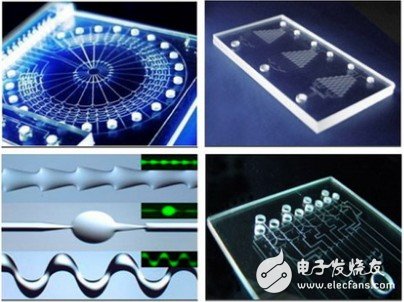China's health care system is mainly composed of public hospitals, and there are still few small, personalized clinics. Therefore, analysis, diagnosis and drug procurement are mainly carried out by public hospitals.
Some hospitals use Western medicine treatment systems, while others use traditional Chinese medicine, but more and more hospitals are beginning to implement a combination of Chinese and Western medicine. As in most other countries, any new drug, technology or instrument needs to be approved by the State Food and Drug Administration before it enters a public hospital in China.
For various reasons, Chinese scientists began to develop high-tech biological devices later. In the late 1990s, the Chinese Academy of Sciences began to pay attention to this global technology trend, and more and more involved in the research work in this field, and in order to speed up the progress, some R&D institutions also joined. Despite the efforts of the government and R&D institutions, high-tech products such as biochips and microfluidic chips are still in the early stages of mass production, and the quality needs to be improved. This is why most of the hospital's biochips and microfluidic chips are imported, and these imported chips are mainly from Europe and the United States. Imported chips are expensive and use a lot, so huge medical expenses are on the patient. In order to cope with this problem, the Chinese government has increased the amount of funds to support relevant institutions and companies to develop medical devices.
The Dalian Institute of Chemical Physics, the Shanghai Institute of Microsystems and Information Technology and the Institute of Microanalytical Systems of Zhejiang University are the most important biochip, microfluidic chip and drug delivery research and development institutions in China, and have achieved certain results. In the past five years, start-up biotech companies have emerged in the Chinese market. At present, there are more than 50 biochip companies in China. However, because the technology is not yet mature and the production scale is limited, it can only be supplied to the Chinese market. Therefore, most of the chips are still dependent on imports, such as international companies Affymetrix, Phadia and Biomérieux.

Figure 1 Microfluidic chip
China's domestic biochip companies mainly include Beijing Boao Biotechnology Co., Ltd. and Biochip Beijing National Engineering Research Center (CapitalBio), Shanghai BioChip, Shanghai-based Health-Digit, and the joint gene. United Gene, Shanghai Yulong Biotechnology Co., Ltd. (Yulong) and Shanghai Bao Technology Co., Ltd. (BaiO). The two major Chinese companies providing microfluidic analysis services are Shanghai Biochip Co., Ltd. and Beijing Boao Biotech Co., Ltd., and other small companies also have some market share. Boao is developing rapidly and has begun exporting its products to Europe and the United States.
Another medical device in China that has great demand is a pacemaker. At present, the development of pacemakers in China is still immature, and there are almost no local brands. About 114 million Chinese died of heart attacks in 2008, but only 10,000 people get a pacemaker or similar device implant each year, so the market demand is huge. Most cardiac pacemakers used in China are imported from Europe, accounting for approximately 80.46% of the market share, equivalent to $55.6 million. China's largest cardiac pacemaker production company is Xi'an Qinming Cardiac Pacing Technology Development Co., Ltd. Other laboratories and universities are accelerating the pace of pacemaker research, but it will take some time.
China's low-end medical devices, such as electronic blood pressure monitors, basic diagnostic equipment and electronic wheelchairs, are quite mature. The main companies in these fields are Xinxiang Golden Elephant Technology Co., Ltd. (Golden Elephant) and Jiangsu Yuyue Medical Equipment Co., Ltd. (Yuyue).
In short, China's high-end medical devices and microfluidic chips are in the early stages of industry development, so the Chinese market relies heavily on imports from Europe and the United States. Although China's R&D institutions and startups need a long way to go, it is estimated that it will take 3-5 years to catch up with Europe and the United States, but this huge market provides entrepreneurs with a lot of opportunities to attract more and more talents and capital investment. among them.
Usb Data Cable,Charging Data Cable,Usb Data Transfer Cable,Fastest Data Transfer Cable
Guangzhou YISON Electron Technology Co., Limited , https://www.yisonearphone.com